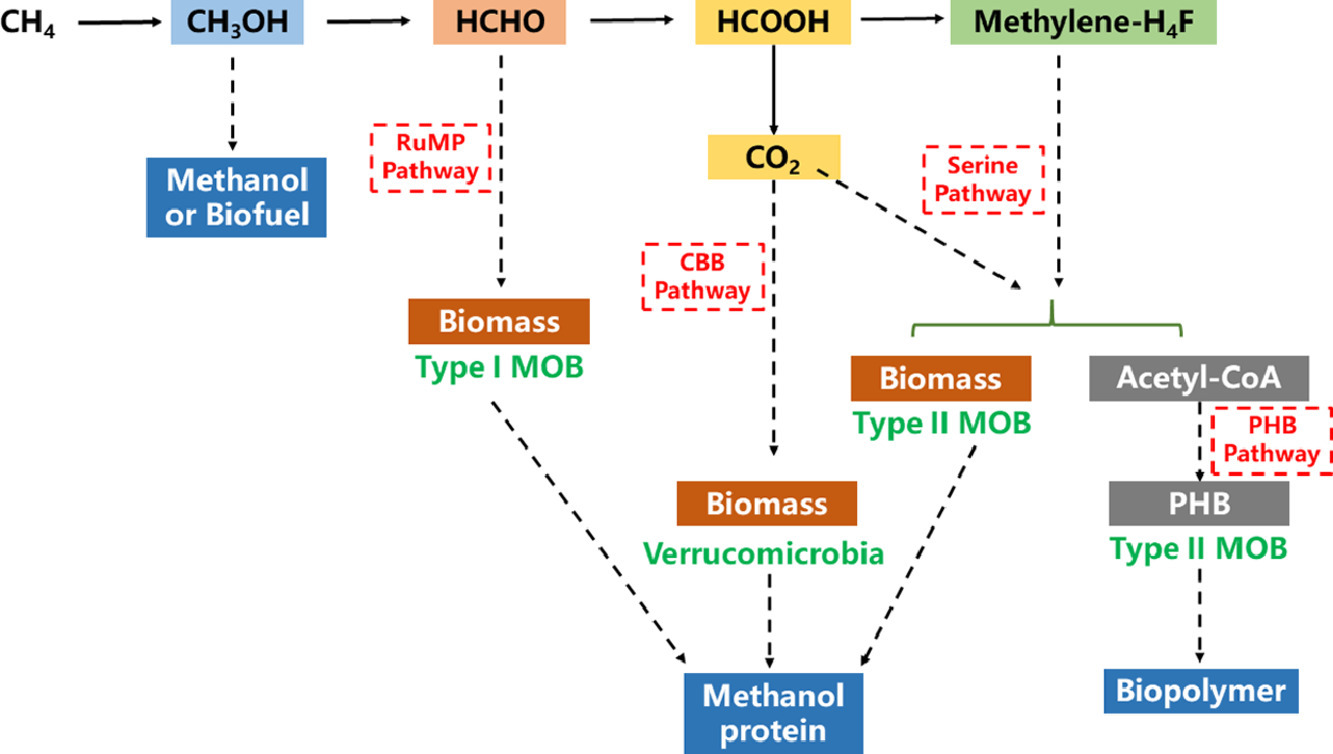4/15/2021 New publication in Water Research


Methane in wastewater treatment plants: status, characteristics, and bioconversion feasibility by methane oxidizing bacteria for high value-added chemicals production and wastewater treatment
Methane is a type of renewable fuel that can generate many types of high value-added chemicals, however, besides heat and power production, there is little methane utilization in most of the wastewater treatment plants (WWTPs) all round the world currently. In this review, the status of methane production performance from WWTPs was firstly investigated. Subsequently, based on the identification and classification of methane oxidizing bacteria (MOB), the key enzymes and metabolic pathway of MOB were presented in depth. Then the production, extraction and purification process of high value-added chemicals, including methanol, ectoine, biofuel, bioplastic, methane protein and extracellular polysaccharides, were introduced in detail, which was conducive to understand the bioconversion process of methane. Finally, the use of methane in wastewater treatment process, including nitrogen removal, emerging contaminants removal as well as resource recovery was extensively explored. These findings could provide guidance in the development of sustainable economy and environment, and facilitate biological methane conversion by using MOB in further attempts.




